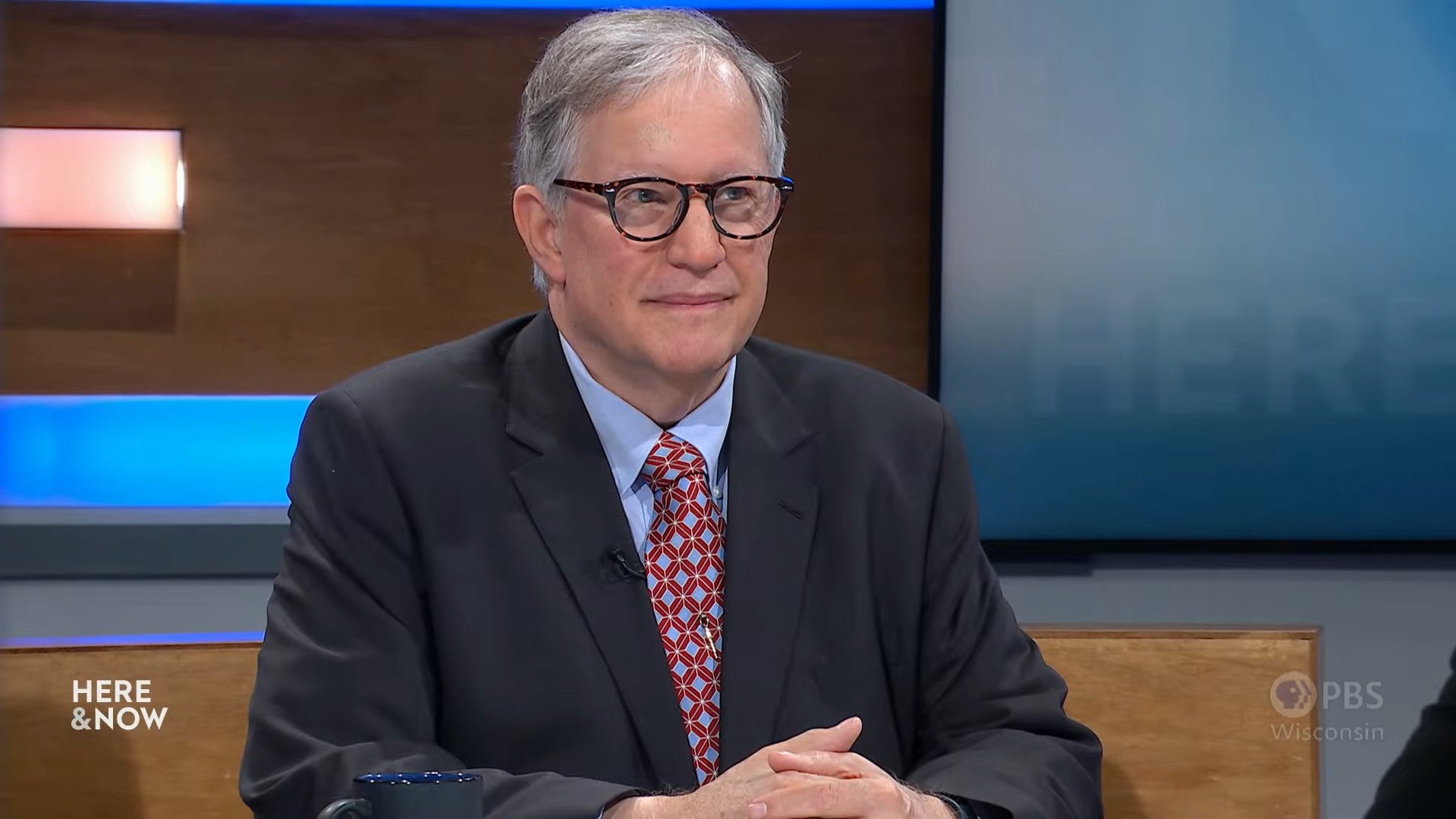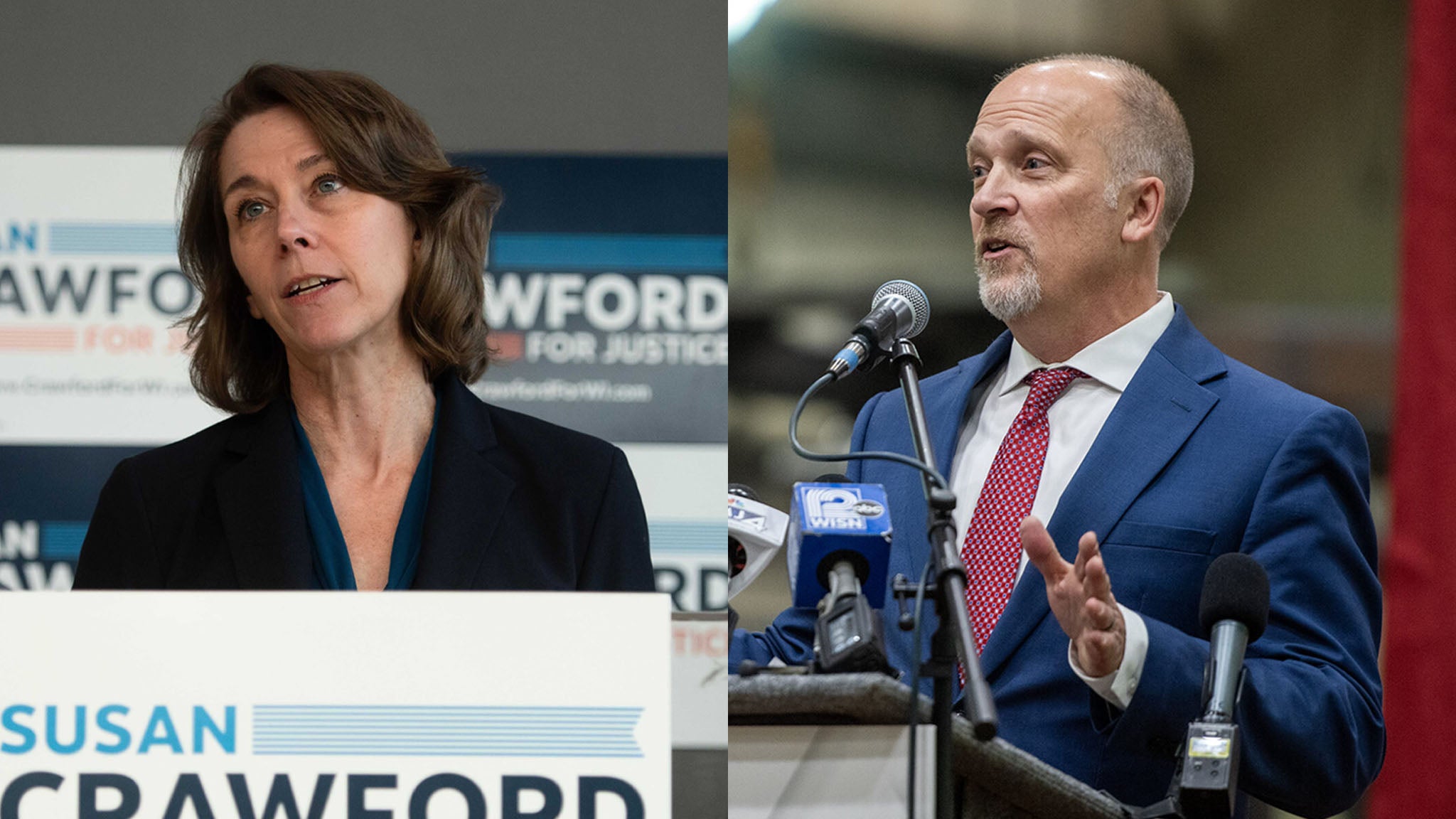Voters throughout Wisconsin and across political lines are solidly in favor of the bipartisan deal to increase revenue for local governments. But most people don’t want to increase taxes to do so, according to a Marquette University Law School Poll released Wednesday.
Last week, Gov. Tony Evers signed a bipartisan plan that will increase state funding for local communities throughout Wisconsin by at least 20 percent.
At the center of the debate for Republicans were provisions that would let the city of Milwaukee and Milwaukee County raise local sales taxes with two-thirds votes by the city’s common council and the county board.
News with a little more humanity
WPR’s “Wisconsin Today” newsletter keeps you connected to the state you love without feeling overwhelmed. No paywall. No agenda. No corporate filter.
If successful, the city could levy a 2 percent sales tax and the county could raise its sales tax by 0.4 percent, with revenue going toward paying down old pension debt and preserving police staffing.
Milwaukee officials are currently exploring ways to remove several of the Milwaukee-specific provisions in the bill — including the two-thirds vote — calling them an “attack on local control.”
Seventy percent of registered voters polled support increasing such aid, especially in Milwaukee County, where support jumped to 78 percent.
But the public is divided over giving cities and counties the ability to increase sales taxes to support local government programs, said Marquette pollster Charles Franklin.
Forty-three percent favor allowing a tax increase, while 53 percent are opposed.
A slight majority — 52 percent — of respondents in Milwaukee County favor allowing a sales tax increase, but the sample size is small, only 120 respondents, with a correspondingly large margin of error of about 12 percentage points. Franklin said that makes it unclear how people will vote.
“The bottom line is this is a perfect example of why elected officials have to sell policies,” Franklin said.
People continue to support some form of legalized abortion
Opinion in the state on abortion has remained pretty stable over the last decade Franklin said, with only modest changes in the number of people who think it should be legal in all or most cases.
One year after the U.S. Supreme Court issued its historic opinion overturning Roe V. Wade, a majority of those polled said abortion should be legal in all or most cases.
In the current survey, 66 percent say abortion should be legal in all or most cases, and 31 percent say it should be illegal in all or most cases. Six percent of people said it should be illegal in all cases.
The Dobbs v. Jackson Women’s Health Organization case left the legality of abortion up to individual states. In Wisconsin, nearly all abortions became illegal immediately, as an 1800s-era law that is still on the books took effect again.
When asked about the Dobbs decision, 64 percent said they oppose overturning Roe, while 31 percent said they favor the decision. But when broken down by party, 63 percent of Republicans favor the Supreme Court decision, compared to 5 percent of Democrats.
Independents were opposed to the Dobbs decision 2 to 1.
“I’m pretty confident Republican officials are well aware of public opinion within their party,” Franklin said. “This issue and the way it’s alive in the Legislature, and likely to remain one will likely remain in front of the public.”
Approval ratings for Evers increase since election
Gov. Tony Evers has a higher approval rating now than he did before he was reelected for a second term in November.
Respondents gave him a 57 percent approval rating versus a 46 percent approval rating in October 2022.
Franklin said he thinks Evers’ approval rating represents the success of the election and the work Evers and the Republican-led Legislature have done over the last several months.
“Over the course of the Spring, we’ve seen pretty normal political bargaining between two polarized parties,” Franklin said.
In the 2024 presidential race, still 16 months away, among Republicans and independents who lean Republican, the GOP presidential primary is a near-even divide, with 31 percent supporting former President Donald Trump and 30 percent supporting Florida Gov. Ron DeSantis.
President Joe Biden has a lead over Trump in a hypothetical matchup, with 52 percent to Trump’s 43 percent and 4 percent undecided.
Franklin warned that the presidential preference numbers should not be an indication of how people will vote in the primary or November 2024.
The survey was conducted June 8-13 with 913 Wisconsin registered voters. The margin of error is plus-or-minus 4.3 percentage points.
The sample includes 419 Republicans and independents who lean Republican and were asked about their preferences in the Republican presidential primary, with a margin of error of plus-or-minus 6.5 percentage points.
The Democratic primary preference was asked of 453 Democrats and independents who lean Democratic, with a margin of error of plus-or-minus 6 percentage points.
Wisconsin Public Radio, © Copyright 2025, Board of Regents of the University of Wisconsin System and Wisconsin Educational Communications Board.







